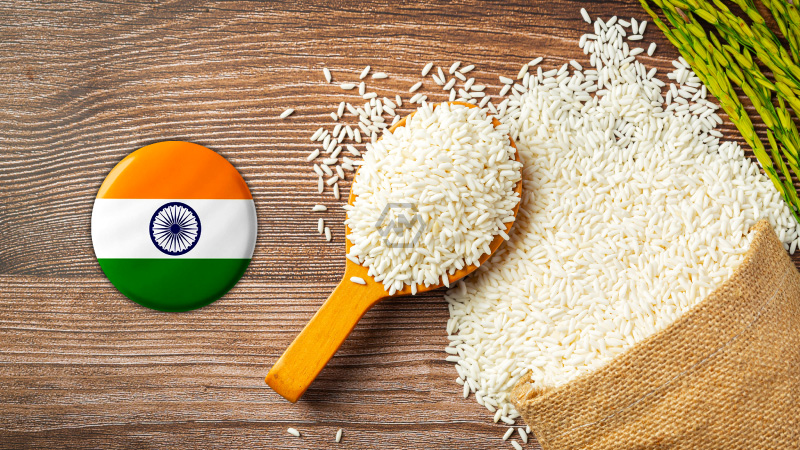- India may relax rice export limits to avoid surplus before the October harvest.
- Potential changes include a fixed duty on white rice and a new levy on parboiled rice.
- Easing curbs could reduce high Asian rice prices, aiding West Africa and the Middle East.
India, the world’s largest rice exporter, is contemplating relaxing its rice export restrictions to manage excess stock before the new crop arrives in October. The proposed measures include allowing white rice shipments with a fixed duty and replacing the 20% tax on parboiled rice with a fixed levy to discourage under-invoicing. These restrictions, initially implemented to curb food inflation, have resulted in record stockpiles according to the US Department of Agriculture.
Reducing these curbs could potentially lower high benchmark Asian rice prices, which have remained elevated since January. This move would be beneficial for countries in West Africa and the Middle East that rely heavily on Indian rice.
India’s Plan to Ease Rice Export Limits: A Global Impact
As Indian farmers are in the midst of sowing their main rice crop for the upcoming harvest, the Indian government is considering measures to ease rice export restrictions. These measures are aimed at preventing a domestic surplus before the new crop hits the market in October. Discussions involve allowing white rice exports with a fixed duty and replacing the current 20% tax on parboiled rice with a fixed levy to prevent under-invoicing.
The initial restrictions were put in place to curb food inflation, but they have led to record stockpiles, according to the US Department of Agriculture. If the curbs are eased, it could help reduce the high prices of Asian rice, which have remained at historical levels since January. This price reduction would be particularly beneficial for countries in West Africa and the Middle East, which depend heavily on Indian rice.
India’s total rice exports have seen a sharp decline, dropping by 21% from the previous year to 2.9 million tons in the first two months of the fiscal year starting April 1. Shipments of non-basmati rice, in particular, fell by 32% to 1.93 million tons. The potential relaxation of export restrictions could help reverse this trend, making Indian rice more accessible globally.
The easing of export restrictions comes at a crucial time as Indian farmers have increased their rice planting activities, with acreage reaching 6 million hectares as of July 8, a 19% increase from the previous year. This increase is due to a recovery in the monsoon after deficient rains in the previous month. A successful harvest would help balance domestic supply and demand while supporting the global rice market.
Easing India’s rice export restrictions could stabilize both domestic stockpiles and international rice prices, benefiting not only Indian farmers but also rice-dependent countries globally.
“Reducing these curbs could potentially lower high benchmark Asian rice prices, which have remained elevated since January.”



